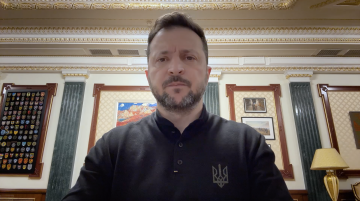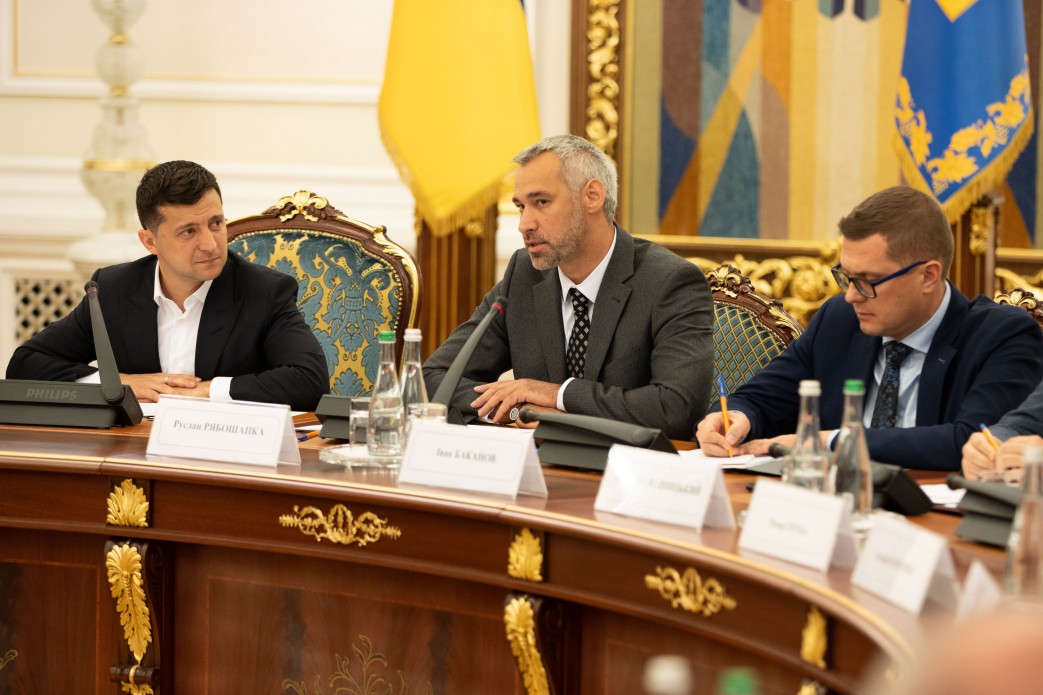It is necessary to propose new ways that will help to move from the process of combating corruption to defeat it after the adoption of the "anti-corruption package" in five years. This was stated by Deputy Head of the Office of the President of Ukraine Ruslan Ryaboshapka during a meeting of the National Anticorruption Policy Council on July 18.
"A so-called "anti-corruption package" was adopted almost five years ago. And during this time we have come a long and difficult path. We need to rethink what has happened over the last five years, and to propose new ways or methods by which we can move from the process of combating corruption to overcome and defeat it," Ruslan Ryaboshapka emphasized.
Deputy Head of the Office of the President of Ukraine paid attention that the National Anticorruption Policy Council under the President of Ukraine has been in existence for five years, but it had meeting just several times.
"I would like to change this practice and meet more often. We have identified five priorities by the end of the year. And I would like to discuss them with all the members of the National Council. In addition, I would like the decisions made and endorsed by the National Council to be implemented," he said.
According to Ruslan Ryaboshapka, the first of these priorities in the work of the National Council is the review of anticorruption legislation.
"Five years have passed since the adoption of legislation on the prevention of corruption, legislation on the National Anti-Corruption Bureau, the Specialized Anti-Corruption Prosecutor's Office. And it's time to revisit, work on mistakes and move on", Deputy Head of the Office of the President noted.
The second priority concerns the development of amendments to the Criminal Procedural Code of Ukraine.
"Since 2012 there have been many changes to this Сode. And every time there was one goal - to make life of lawyers easier, and investigators, detectives and prosecutors - more complicated. Unfortunately, "the amendments made by Lozovy"complicated work of not only anti-corruption but also law-enforcement agencies in general," Ruslan Ryaboshapka emphasized.
For his part, Head of the Office of the President of Ukraine Andriy Bohdan noted that the National Anticorruption Policy Council is one of the first to consider amendments to the Criminal Procedural Code of Ukraine, which will help to make the trial and pre-trial investigation more effective.
"By protecting the rights of citizens to properly defend their position in court and during pre-trial investigation, the legislator gave a lot of opportunities to abuse his rights. As a former lawyer, I think that it is practically impossible to to bring to a logical conclusion of the criminal proceedings if there is enough money to hold the defender," he explained.
At the same time, the third priority of the work of the National Council is the development of legislation to strengthen the protection of the disclosure agents, without which it is impossible to reveal corruption offenses.
The fourth direction concerns the adoption of a new anti-corruption strategy. Ruslan Ryaboshapka reminded that Ukraine has been living without a roadmap for several years now.
"We should finish work on a New Anti-corruption Strategy as soon as possible. I know that the draft of such document has already existed. I hope that our National Council will finalize it as soon as possible and we will propose this strategic document to the President for inclusion into the Parliament ", Deputy Head of the Office of the President of Ukraine said.
The fifth priority is to develop ways of fulfilling international commitments in the framework of cooperation with the Group of States Against Corruption (GRECO), the Organization for Economic Cooperation and Development, and within the framework of the UN monitoring mechanisms.




